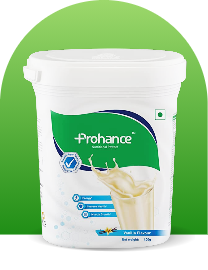
A crucial macronutrient—protein plays an important role in the body—building and repairing muscles is just one function of protein. But how much protein do you need? Calculating protein for yourself or your family can be challenging. Luckily, there are various types of protein intake calculators that let you calculate optimum protein intake for an individual based on different factors. A wholesome nutrition calculator, like Nutrimetrix, can give insights into your daily nutritional needs, including protein.
Let’s dive in to explore what is a protein calculator, how much protein does an individual need and practical insights on how to align your diet according to the recommended protein intake.
A digital tool designed to estimate the optimal protein intake for an individual, a protein calculator can help you fulfil the recommended dietary allowance (RDA) for protein. The estimates are calculated based on an individual’s age, weight, gender, height, activity level, and health goals. A protein calculator can provide personalised recommendations by calculating protein requirements for you, unlike generic nutritional advice.
Protein intake calculators work on science-backed formulae by collecting your weight, age, activity levels, and fitness goals to give you an estimate of your daily protein requirements.
You need the RDA for your body’s optimal health; however, everyone’s protein needs differ slightly based on different factors. For example, a person who sits at their desk for work 6 days a week and works out in moderation 2-3 times a week will have lower protein requirements than someone who works in the hospitality sector and moves on their feet all day long. Here are a few reasons why calculating protein is important for your overall health:
Gender | Age | Approximate Body Weight (kg) | RDA for Protein (g/day) |
Men | ≥18 years | 60 | 60 |
Women | ≥18 years | 55 | 55 |
Pregnant women | ≥18 years | 55 | 78 |
Lactating mothers | 0-6 months | 55 | 74 |
Lactating mothers | 6-12 months | 55 | 68 |
Children | 1-3 years | 12.9 | 16.7 |
Children | 4-6 years | 18.0 | 20.1 |
Children | 7-9 years | 25.1 | 29.5 |
Boys | 10-12 years | 34.3 | 39.9 |
Girls | 10-12 years | 35.0 | 40.4 |
Boys | 13-15 years | 47.6 | 54.3 |
Girls | 13-15 years | 46.6 | 51.9 |
Boys | 16-17 years | 55.4 | 61.5 |
Girls | 16-17 years | 52.1 | 55.5 |
The RDA for protein is about 0.8 g protein per kilogram of body weight for healthy adults. Here are some high-protein food sources:
As you are now aware, your daily protein intake depends on several factors. Here are some general guidelines to help you get the right amount of protein through your meals:
Try the Nutrition Calculator to get detailed insight on your daily meal
Although an essential macronutrient, protein isn’t beneficial if taken in excess. Overconsuming protein regularly can lead to the following:
Consult Now & get personalized guidance to improve your health and wellbeing
Calculating protein using a protein intake calculator is a vital step in achieving optimal health. Personalised recommendations provided by the digital tool can ensure you consume adequate amount of protein on a regular basis. It is best to include a variety of protein sources in your diet and avoid overconsumption.
However, if you find that your diet isn’t able to provide you with enough protein, you can fulfil your protein requirements with a health supplement like Prohance. With different types of protein supplements for every individual, whether you have diabetes or are about to welcome home a baby, Prohance can help you live a healthy life with convenient, complete nutrition solutions. If you aren’t sure about how to calculate protein, try this easy-to-use nutrition calculator.
